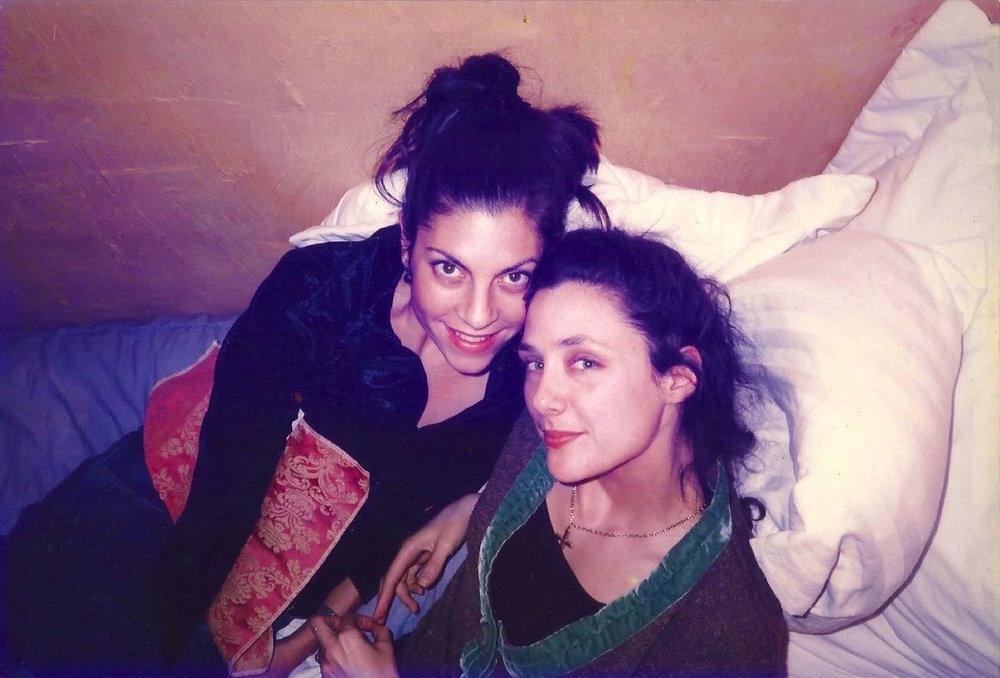
I first saw Barbara Browning when she was naked, one hand extended to open a shower curtain, in our shared dorm bathroom, when we were both in our late teens. Barbara wore her hair short then, and her compact little body was so unapologetically whole, not a series of parts in the way I considered my own body to be. Somehow, in the coming days, which were the last days of my sophomore year, I convinced Barbara to endlessly say words that began with the letter “B”, because I loved the way she said it. She had a way of expelling the B sort of like a P, but in a caressing, slow way—I could watch her for hours saying “bubble” and “best”. I suppose you could call it falling in love.
My first films were about dreams I’d had, and Barbara was my muse. She played a sleepwalker, Eve in the garden, a demented art historian. She danced naked, covered only in shredded paper, or wearing a mask of cheesecloth. She emerged naked from a freezing pond. She was game, her body was a triumph, she was like a little animal. We lived together in New Haven, and later in Brooklyn. Sometimes we are separated for months, but our closeness never dims. We don’t fight. We accept each other as we are. We have known each other for around thirty years. We still seem young to each other.
—Rebecca Miller
REBECCA MILLER: Barbara, the first thing I want to talk about is your approach to using people from your own life as characters in your books, especially The Gift. You have such an unusually ethical approach in that you actually ask people if it’s okay that you use them, and often let them read the parts of the book they are in. I wonder if you do this because, though you change our names (in my case very slightly, from Rebecca to Rebekah), you don’t pretend we are fictional characters: you present us as real and you write the truth as you experience it.
I never ask permission, I just hope certain people don’t read or watch my work. And mostly I love the people I use, like you, so it’s a loving portrait, and I don’t have to hide. Anyway, maybe can you talk about the delicate balance of “fact” and “fiction” in your work? Do you feel this mitigates the element of vampirism that dogs all writers’ souls?
BARBARA BROWNING: It’s funny you use the word “ethical,” because my narrator recounts an episode in which her smarter, more politically committed students do some eyeball-rolling over the suggestion that her nervousness about hurting...
You have reached your article limit
Sign up for a digital subscription and continue reading all new issues, plus our entire archives, for just $1.50/month.
Already a subscriber? Sign in




